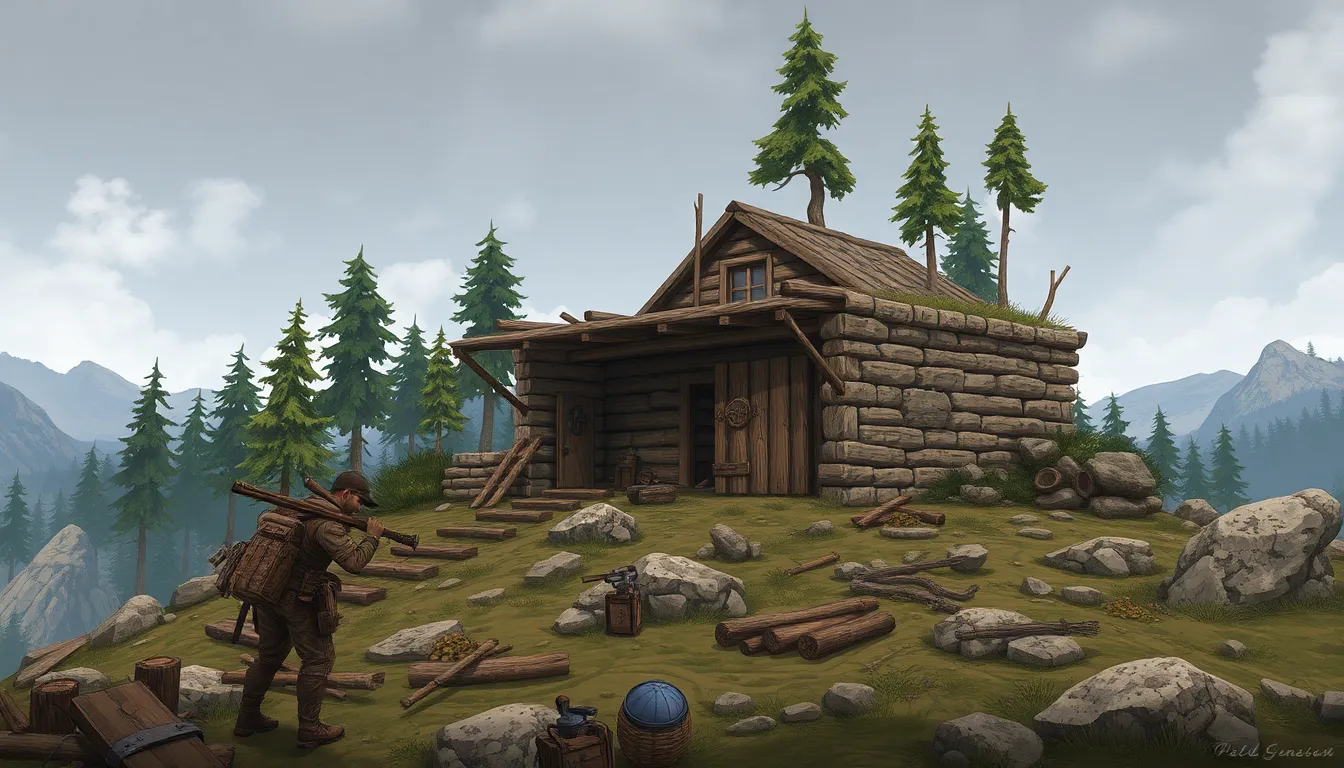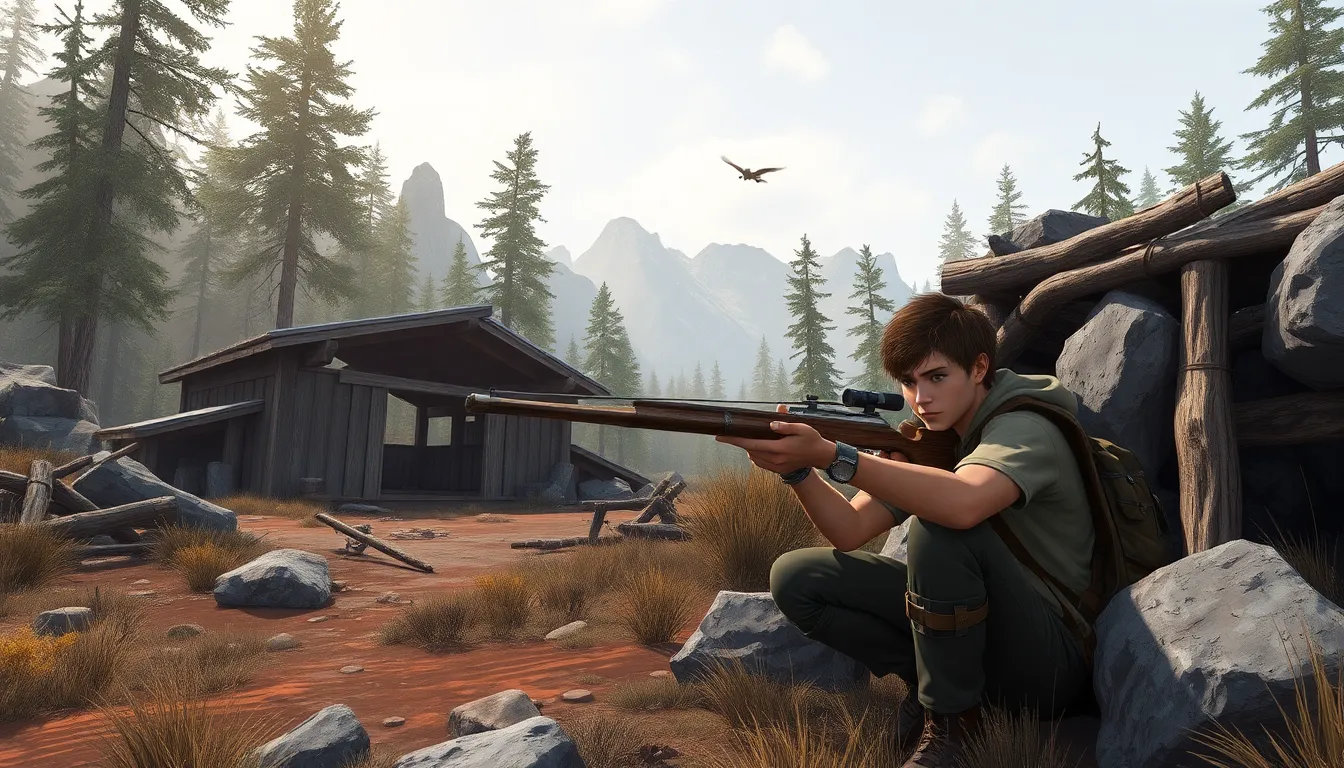Table of Contents
ToggleIn the chaotic world of Rust, survival isn’t just a game; it’s an art form. Players face a relentless barrage of challenges, from raiding neighbors to dodging wild animals that seem to have a personal vendetta. With the right strategies, however, even the most inexperienced players can transform into formidable survivors.
Overview of Rust Strategy Guide
Surviving in Rust requires understanding the game’s mechanics and crafting effective strategies. Players face threats from hostile players and wildlife, demanding awareness and quick decision-making. Building a base acts as a fundamental step; a well-constructed base offers security and resources, serving as a launch point for further exploration.
Looting is another critical aspect. Gathering resources like wood, stone, and metal early on provides the materials needed for crafting tools and weapons. Players can maximize efficiency by prioritizing resource hotspots like monuments and areas with high loot density.
Combat plays a significant role in Rust. Knowing when to engage or avoid enemies can determine survival. Players often benefit from crafting a variety of weapons, allowing them to adapt to different situations. Stealth tactics also come into play; sneaking up on opponents can provide an unexpected advantage.
Raiding adds an extra layer of strategy. Timing raids for nightfall can provide cover, while scouting enemy bases ensures players choose the right moment for an attack. Understanding building structures helps in identifying weak points, making successful raids more achievable.
Teamwork proves essential for enhancing survival odds. Players who form alliances can share resources and strategies, increasing overall effectiveness. Coordinating attacks or defending bases in groups enhances both social and combat dynamics.
Every element from resource management to combat tactics plays a role in crafting a winning strategy in Rust. These approaches empower players, turning novices into formidable survivors in a challenging landscape.
Key Elements of Successful Strategies

Effective strategies are crucial for thriving in Rust’s harsh environment. Players must focus on several key elements to enhance their chances of survival.
Resource Management
Players should prioritize gathering crucial resources like wood, metal, and cloth. Harvesting these materials from resource hotspots enables efficient crafting of tools, weapons, and shelter. Crafting and upgrading items require understanding resource allocation. Efficient inventory management minimizes waste. Storing excess resources in a secure location can provide a safety net during emergencies. Regularly checking surroundings for valuable resources enhances survival odds. Observing other players can also reveal hidden supply routes. Maintaining a balanced resource stock ensures preparedness for combat and building activities.
Base Building Tips
Establishing a secure base serves as a foundation for survival. Selecting an elevated location can deter intruders while providing an advantage in engagements. Using strong building materials such as stone and metal increases durability against raids. Design layouts with multiple exits to facilitate quick escapes when under attack. Securing doors with locks adds another layer of protection. Implementing traps around the base can deter unwanted visitors. Collaborating with teammates on base design can spread out resource demands. Regularly upgrading the base in response to threats ensures continuous safety. Prioritizing these factors develops a resilient stronghold for players navigating Rust’s challenges.
Combat Strategies
Combat remains a critical aspect of Rust, and players can adopt various strategies to enhance their chances of survival.
PvP Tactics
Players excel by understanding movement patterns and utilizing the environment to their advantage. Flanking opponents often disrupts their line of sight, making it harder to retaliate. Using cover effectively minimizes damage taken during engagements. Positioning allows for better shots, especially with long-range weapons. Players should also consider practicing with different firearms to improve accuracy. Teamwork enhances combat effectiveness; players covering each other creates a safer approach. Coordination offers strategic advantages in numerical battles. Moreover, utilizing grenades or other explosives can force enemies out of cover.
Survival Techniques
Survival relies on constant awareness and adaptability to changing circumstances. Mastering stealth can help players avoid unnecessary conflicts. Gathering resources without attracting attention lessens the risk of ambushes. Additionally, players should scout areas before exploration; knowing enemy bases and potential threats is essential. Prioritizing food and water supplies ensures sustainability during long play sessions. Equipping armor and healing items before engaging increases survivability. Creating diversion tactics can draw away threats, providing escape opportunities. Lastly, forming alliances strengthens community ties and increases defensive capabilities.
Advanced Strategies for Experienced Players
Experienced players in Rust can elevate their gameplay with advanced strategies focused on efficiency and tactical prowess. Prioritizing high-value resource collection ensures players remain equipped with the best tools and weapons. They should target resource hotspots, especially those rich in sulfur and metal nodes, to enhance crafting capabilities.
Building secure bases takes on greater significance in the advanced stages. Players benefit from incorporating complex layouts with multiple levels for added defensibility. Utilizing armored materials, along with traps and turrets, significantly deters would-be raiders. Strategic placement of doors and gates creates additional layers of security, enhancing survival chances.
Engagements in PvP require skillful execution. Movement patterns play a crucial role; players must learn to anticipate enemy actions while utilizing terrain for cover. Utilizing items like grenades to flush out enemies can turn encounters in their favor. Coordinating attacks with teammates amplifies effectiveness, as they can support one another during firefights.
Mastering stealth tactics remains vital. Players are encouraged to scout enemy bases before launching raids, identifying weaknesses or potential escape routes. They should also consider utilizing distractions, such as bonfires or different sounds, to mislead foes during critical moments. This approach allows for targeted strikes and retreat options.
Furthermore, managing inventory is key. Keeping essential items, such as health kits and ammunition, readily accessible boosts readiness for any encounter. When crafting weaponry, focusing on versatility enhances combat performance across different scenarios. Players can significantly improve survival and combat effectiveness with carefully curated loadouts.
Lastly, fostering alliances can provide substantial advantages. Forming groups not only enhances resource sharing but also creates opportunities for joint raids. Trust among players solidifies community strength while amplifying overall tactical performance in the broader Rust landscape.
Common Mistakes to Avoid
Players often overlook base security. Neglecting to reinforce doors and windows invites unwanted guests. Failing to use locks on storage containers can lead to resource theft.
Another common mistake involves poor resource management. Keeping inventory organized prevents unnecessary clutter and loss of essential items. Gathering too many non-essential materials burdens players during critical moments.
Underestimating the importance of stealth creates vulnerabilities. Engaging in loud confrontations attracts attention and raises the risk of fatal encounters. Scouting areas before venturing in reduces dangers and enhances survival chances.
Combat strategies are frequently mishandled. Rushing into fights without a plan often results in defeat. Coordinating with teammates improves safety and increases chances of victory.
Ignoring food and water supplies can lead to dire consequences. Starvation or dehydration hampers effectiveness during raids or combat. Regularly checking these resources ensures optimal performance.
Teamwork also tends to be undervalued. Players who venture alone might miss out on shared knowledge and resources. Forming alliances fosters stronger communities and improves collective survival.
Additionally, players sometimes neglect to upgrade their base. Regular enhancements deter potential raiders and fortify defenses. Building stronger structures using higher-quality materials pays off in long-term safety.
Raiding strategies might be poorly executed as well. Failing to scout enemy bases results in unnecessary losses. Coordinating timing with team members ensures that assaults are effective and minimize exposure.
Finally, players might skip practicing with different weapons. Understanding each weapon’s mechanics allows for better performance in high-pressure situations. Diversity in gear allows for greater adaptability against various combat scenarios.
Mastering Rust requires a blend of strategy and adaptability. Players who focus on resource management and base security can significantly increase their chances of survival. Understanding the game’s mechanics and employing effective combat tactics are essential for navigating the challenges of this harsh environment.
Teamwork and alliances play a crucial role in overcoming obstacles and enhancing overall gameplay. By learning from mistakes and continuously upgrading their strategies, players can thrive in Rust’s competitive landscape. Embracing these principles will not only improve individual skills but also strengthen the community as a whole.










